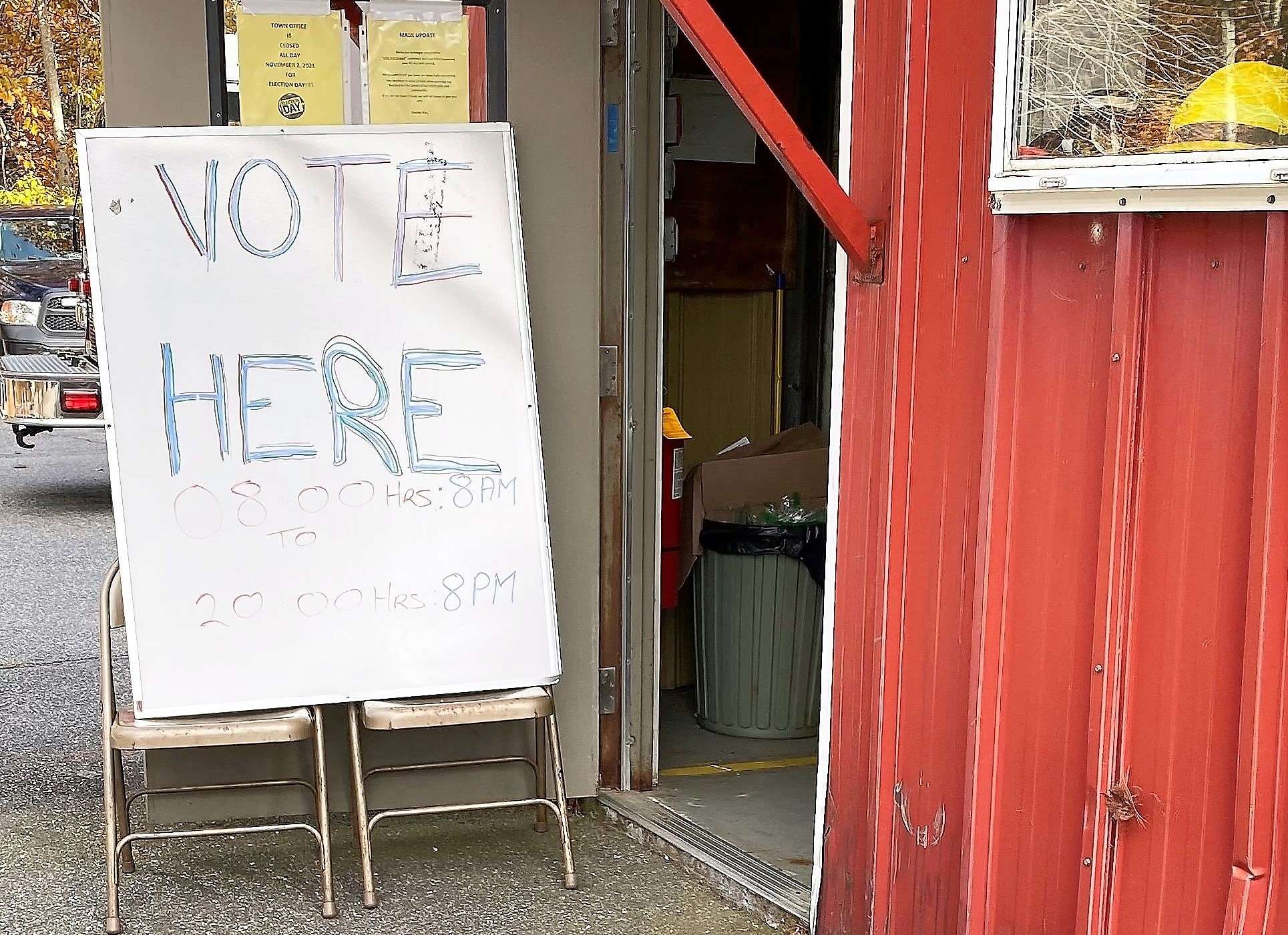
By a clear-cut vote, Mainers say 'no' to CMP's power transmission corridor
 Photo / William Hall
In Yarmouth on Tuesday afternoon, election turnout was heavy and steady, with voters frequently waiting in line outside the town's one polling center.
Photo / William Hall
In Yarmouth on Tuesday afternoon, election turnout was heavy and steady, with voters frequently waiting in line outside the town's one polling center.
By overwhelming majorities, Maine voters on Tuesday responded “yes” to all three questions on the statewide election ballot — including a referendum to end the $1 billion electricity transmission corridor under construction in Franklin and Somerset counties.
By Monday morning, with 530 of 571 precincts reporting, the state’s tally showed that 238,808 voters, or 59% of those casting a ballot, favored the proposal, a margin that was in line with recent polling. Passage of the Question 1 referendum is meant to halt work on the 145-mile electricity line by the state’s largest utility, Central Maine Power Co., and its backers.
The convoluted query asked: “Do you want to ban the construction of high-impact electric transmission lines in the Upper Kennebec Region and to require the Legislature to approve all other such projects anywhere in Maine, both retroactively to 2020, and to require the Legislature, retroactively to 2014, to approve by a two-thirds vote such projects using public land?”
The New England Clean Energy Connect project, which broke ground earlier this year, is intended to deliver 1,200 megawatts of hydropower produced in Quebec to the New England energy grid, connecting with it in Lewiston. If completed, NECEC would be the region’s largest source of renewable energy.
Supporters of the project, including CMP, parent company Avangrid Inc. (NYSE: AGR) and the Canadian power producer Hydro-Quebec, said NECEC will generate $18 million a year in host community tax revenue and increase the state's gross domestic product by $573 million. Roughly 400 workers are already employed clearing the corridor — most of which is right-of-way parcels owned by CMP.
But opponents, including the Natural Resources Council of Maine and the Sierra Club, claimed the new corridor will irreparably damage Maine’s environment and offer little benefit to the state. A PAC of project foes, No CMP Corridor, led an unsuccessful referendum attempt to reverse permitting of the project in 2019. Last November, the group mounted another try, with broader language that ultimately ended up on Tuesday’s ballot.

In total, the two sides spent nearly $100 million on advertising and other efforts to influence the vote, making it the most expensive referendum campaign in Maine’s history.
On Tuesday night, Tom Saviello, the lead petitioner of the referendum, said in a statement: "Today, Maine citizens had a voice in the development of the CMP corridor and any future proposed corridors. My goal all along was to give them that voice. The vote today proved Mainers cannot be hoodwinked or bought off by CMP and Hydro-Quebec. I call on CMP to stop all construction as the people of Maine have spoken."
Avangrid issued a statement Wednesday, saying: “While the outcome of this election is disappointing, it is not the end of the road and we will continue to advocate for this historic and important clean energy project.
“We have followed the rules every step of the way in a transparent and public process and have received every regulatory approval required for this project to proceed. Politicians and their supporters shouldn’t be allowed to tear up valid contracts, ignore the judicial and executive branches and go back in time to retroactively change the rules to stop a project like the NECEC just because it threatens their political and financial interests.”
Other election results
By a 72% majority, Maine voters on Tuesday also approved a $100 million bond referendum to improve the state’s transportation infrastructure.
The funding will cover a wide range of projects, with $85 million going to roads and bridges and $15 million funding upgrades to railroads, airports, transit facilities and ports. The funding will leverage $253 million in additional federal funds, and would be repaid over a 10-year period.
By a 61% majority, voters also approved a referendum establishing a “right to food” in the Maine state constitution.
The referendum asked whether Maine should “declare that all individuals have a natural, inherent and unalienable right to grow, raise, harvest, produce and consume the food of their own choosing for their own nourishment, sustenance, bodily health and well-being.”
Although the constitutional amendment isn’t expected to result in any significant changes to Maine’s food production system, proponents claimed the measure will guarantee Mainers’ rights to grow their own vegetables and raise livestock.










0 Comments